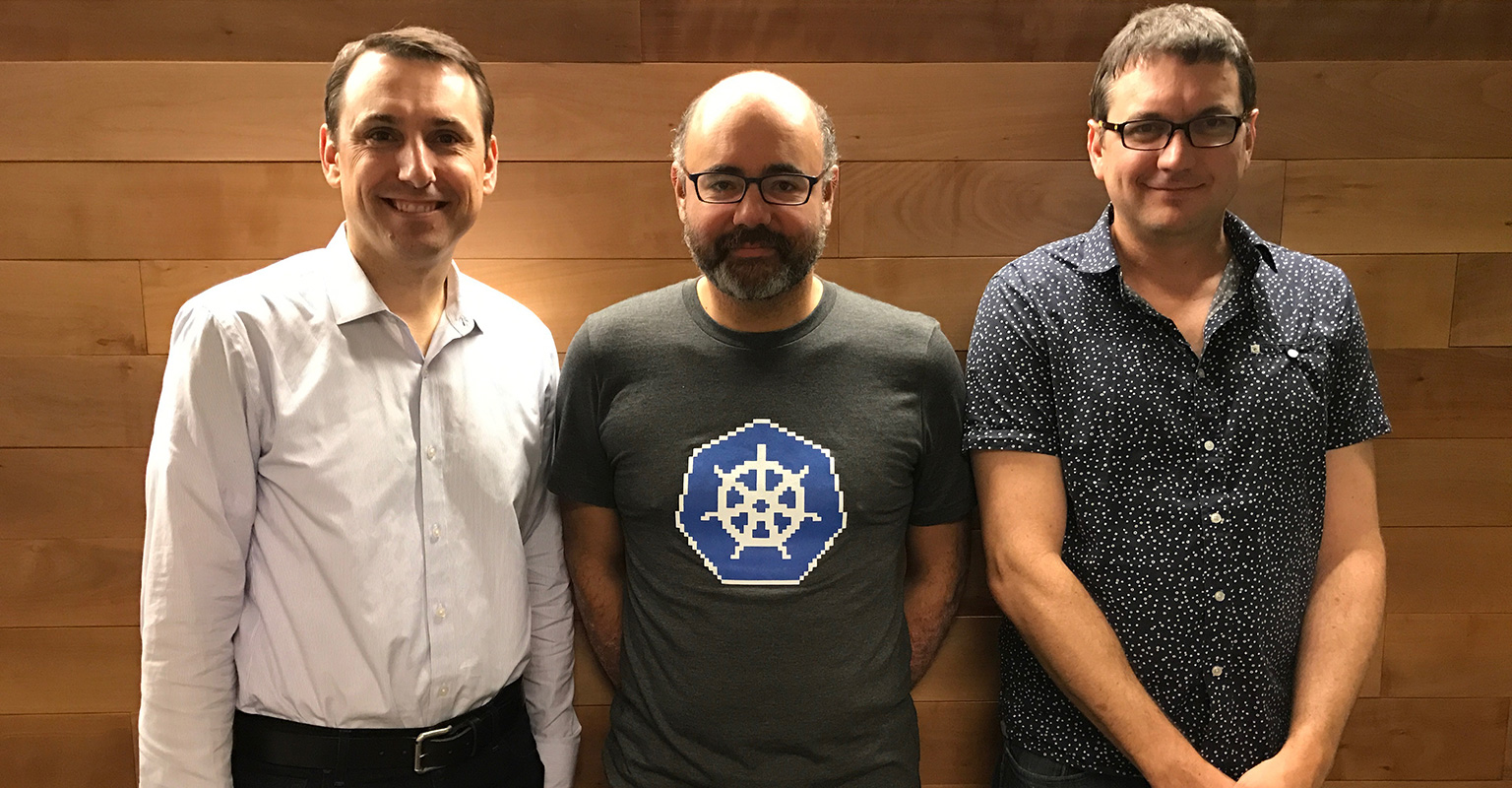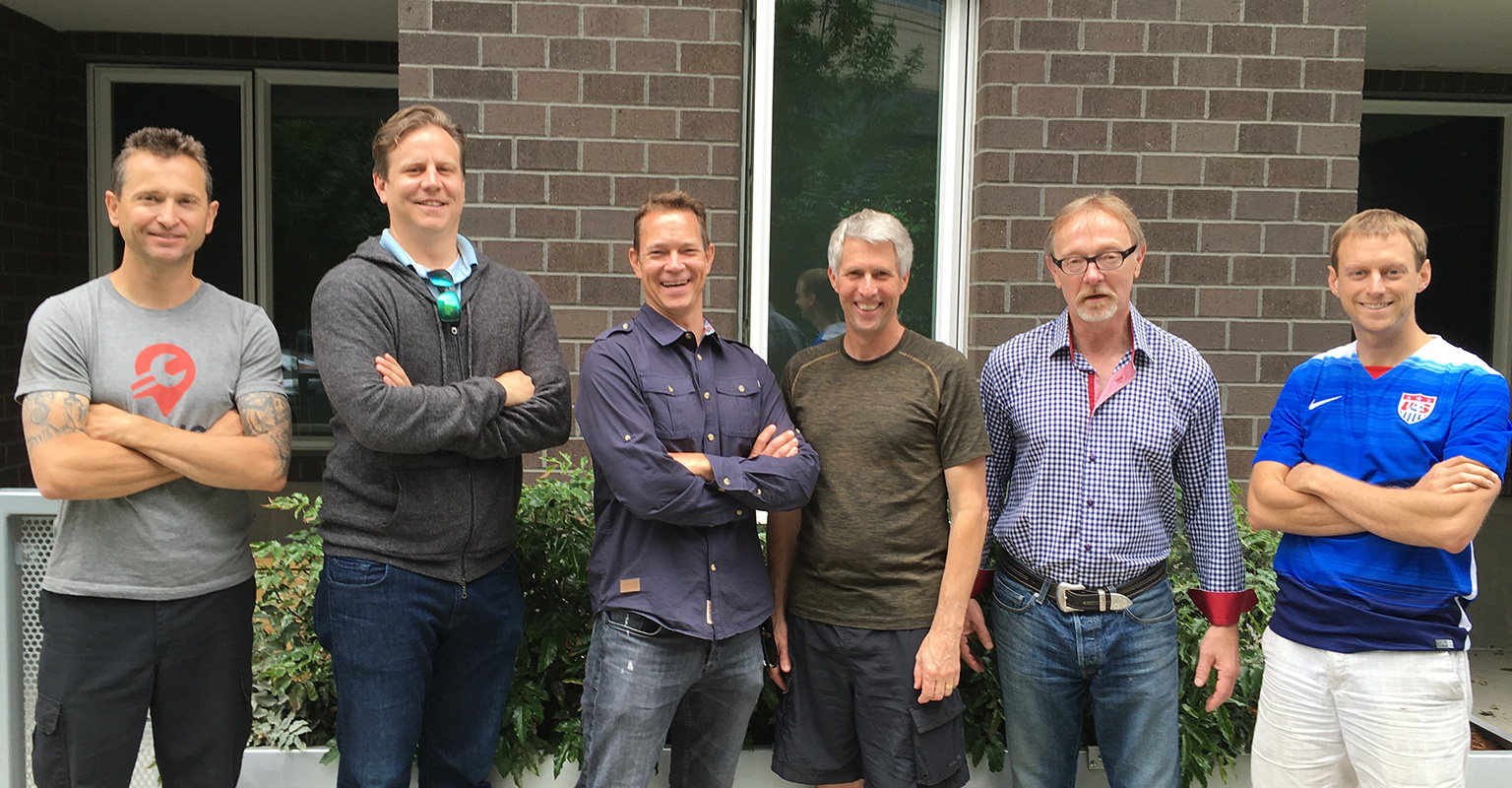We could not be more excited to be investing in Heptio. Heptio is aiming to become the Kubernetes company and is founded by two of the creators of Kubernetes at Google, Craig McLuckie and Joe Beda. Specifically, Kubernetes is the leading open source cluster manager for containers; but, broadly, we feel Kubernetes is a core technology that is changing how IT in enterprises works. Joe and Craig are two world class entrepreneurs who have the technological expertise, the industry and customer relationships, and the leadership and respect of the Kubernetes community necessary to build a massively successful business in this field. Heptio also represents an investment in one of the biggest themes Madrona has been tracking over the past several years: the move to “Cloud Native.”
Over the past decade plus, we have seen enterprises steadily evolve towards a cloud native world.
Over the past decade plus, we have seen enterprises steadily evolve towards a cloud native world. This movement began with application workloads moving from operating systems running on bare metal servers to virtual machines running on hypervisors, primarily to reduce cost by consolidating hardware. Then we saw the move of these virtual machines into the cloud to greatly increase operational agility and further reduce cost. This enormous move (of which we are still in the relatively early innings), led first by Amazon Web Services as well as Microsoft Azure, turned Seattle into the Cloud Capital of the world. While much of this move to the cloud has meant migrating from on-premise to a public cloud infrastructure, enterprises have also altered their approach to internal infrastructure and created private clouds to capture many of the same advantages of the public cloud. This brings us to cloud native – the current wave of the cloud evolution that is really a combination of technologies, practices and culture.
The cloud native technological shifts that are occurring are accelerating adoption of containers (usually replacing VM’s but also running inside them) and application architectures moving to distributed microservices. All of this requires a different approach to working and managing resources, often referred to as DevOps, but perhaps better described as “cloud native ops.” The advantages of this approach are many: further reduced cost and complexity, greater developer productivity, easier to manage and scale applications, and better performance – all without sacrificing security. Now, as containers and microservices proliferate, managing them and the server clusters they run on at scale has created new challenges. Thus, Madrona and many VC investors have been hunting for and investing in companies that make it easier to orchestrate, network, secure, monitor, and attach storage to container-based, microservice architectures.
However, orchestration and management are the most strategic capabilities needed by enterprises for these container-based, cloud native environments. Docker is a company that has become one of the better known names in IT because of their container technology and its widespread popularity with developers. Now Docker is also offering and attempting to monetize their orchestration software. Google has been the leader in developing and managing container-based applications and infrastructure far longer than Docker. In February 2015, Google released Kubernetes as an enterprise-friendly open source project that encapsulated a decade of experience building their internal container-based cluster management system called Borg, which is the core of how Google manages their datacenters. Then in July 2015 when Kubernetes hit version 1.0, Google donated control of the project to the Cloud Native Computing Foundation. While everyone in this industry knows Docker and has heard of Kubernetes, what you might not know is that Kubernetes is now the most active project on Github.
Further, the most popular way to manage and orchestrate Docker containers is not actually Docker. It’s Kubernetes. While many chapters in this story certainly remain to be written, we feel that Kubernetes is the key platform technology for this continuing evolution to cloud native and is on a path to be the default management system for this new way of computing. This is a hugely valuable opportunity, and Heptio can be the go-to partner for cloud native enterprise IT transformation.
We feel that Kubernetes is the key platform technology for this continuing evolution to cloud native and is on a path to be the default management system for this new way of computing.
In the world of start-ups, it’s not enough to just have a great idea and a big market. You have to have the right team. And Craig and Joe are literally the best team in the world to go after this opportunity. As Kubernetes co-creators here in Google’s Seattle offices, they understand the space inside and out, know and are known by the Kubernetes open source community, and have a deep appreciation for the users of Kubernetes and the challenges faced by enterprise customers in adopting this technology. You could say that the founders of Kubernetes are carrying on the mission as a stand-alone company.
While Kubernetes has become very popular, it is still too difficult to get up and running. Companies also have nowhere to turn to get enterprise-level support, which is a necessity for broad corporate IT adoption. Heptio will provide this commercial support, while also building on the open source base to improve usability, installation, and eventually adding and extending Kubernetes features and functionality. They will do this in a way that supports the existing ecosystem, not competes with it. Over time, we think Heptio can become a centerpiece for how companies develop and operate software.
We are also pleased to be partnering with Ping Li from Accel, who led the investment round, in our support of Heptio.
At Madrona, we aim to invest in the best entrepreneurs attacking the biggest markets in the Pacific NW, who have the opportunity and ambition to build long-term, standalone businesses. We feel that Heptio can be the next iconic cloud company based here in Seattle, and we are excited to help Craig and Joe along this journey.



